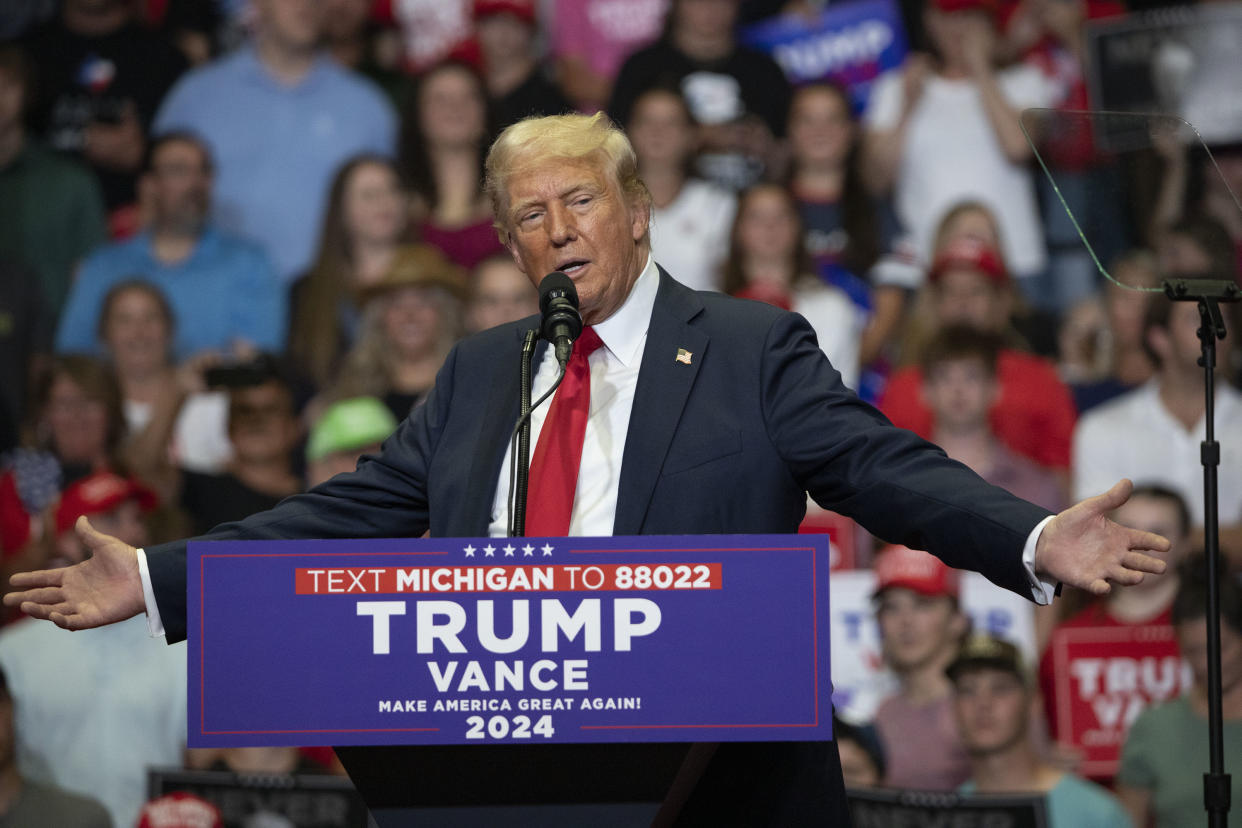Paul Krugman: Fed cutting rates 'shouldn’t matter much' in presidential election
The Federal Reserve is widely expected to cut interest rates in September, less than two months before the November election.
And ahead of this expected move, Fed Chair Jerome Powell has been facing pressure from lawmakers on both sides of the aisle. Including former President Trump, who said in an interview with Bloomberg last month rate cuts are "something that they know they shouldn't be doing."
But in an interview with Yahoo Finance, Nobel Prize-winning economist Paul Krugman said a rate cut in September "shouldn't matter much" for the election, given the lagged effects policy has on the real economy.
"What the Fed does today shouldn't affect the real economy for quite a few months, not until well after the election," Krugman said.
Cooler readings on inflation and an uptick in the unemployment rate have helped fuel a narrative that the central bank should cut rates sooner rather than later. The central bank could cut rates as soon as next week, although markets are convinced of a September start to the Fed's easing cycle, pricing in a nearly 100% chance of a cut in two months.
"Concretely, if you asked what impact ... the Fed does have on the unemployment rate on Election Day? The answer is margin of error, nothing there," Krugman said. "If you ask what effect it might have on how people feel about the economy? It might make a big difference."
"I think one of the things that we've learned in the past couple of years is that consumer perceptions of the economy don't very closely follow the traditional variables," Krugman added. "If [the Fed] cuts, that's a prestigious voice saying, 'We're not worried about inflation anymore,' which might affect things."
A 'politicization' of monetary policy
Trump, who frequently criticized Powell during his first term in office, also told Bloomberg last month he'd let the central bank leader serve out his term, "especially if I thought he was doing the right thing," he said.
But Krugman noted Trump's policy proposals, which include steep tariffs on China, "are pretty seriously inflationary," which the Fed would be forced to fight against.
"A Trump administration would be much more inflation-prone than what we've been seeing under Biden," he said. But that doesn't mean Trump, if history is any indication, would welcome the notion of Powell hiking rates.
"Whatever Trump may say now about how he's going to keep Powell, the idea that they would leave the Fed free to raise rates if inflation picks up during a second Trump administration is a fantasy," he said.
"Regardless of who is actually Fed chair, we're going to be seeing a lot of politicization of monetary policy," the economist added.
"For the past couple of decades, presidents have been very careful, for the most part, to avoid making the Fed appear to be a political football. But those rules don't apply to a future Trump administration."

Alexandra Canal is a Senior Reporter at Yahoo Finance. Follow her on X @allie_canal, LinkedIn, and email her at alexandra.canal@yahoofinance.com.
Click here for the latest stock market news and in-depth analysis, including events that move stocks
Read the latest financial and business news from Yahoo Finance





